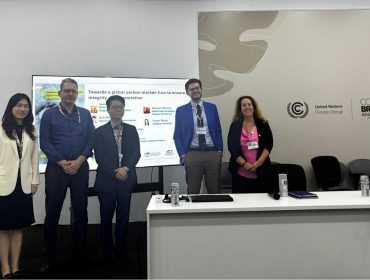
India’s Growth Story Since the 1990s Remarkably Stable and Resilient
NEW DELHI (INDIA) – March 14th, 2018 – The Indian economy is set to revert to its trend growth rate of 7.5 percent in the coming years as it bottoms out from the impact of the Goods and Services Tax (GST) and demonetization, a new World Bank report says.
In consideration of this progressive prospect, WUSME is committed to support the cooperation and help SMEs seize the business opportunities available in India.
This is also the aim of the International SME Convention “Business Beyond Borders” WUSME co-organized with the INDIA SME FORUM under the Patronage of the Ministry of MSMEs of India in New Delhi on April 22nd-24th, 2018.
Link with all the information on the event: https://www.wusme.org/wp-content/uploads/International-SME-Convention-Brochure.pdf
The India Development Update is a biannual flagship publication of the World Bank which takes stock of the Indian economy. The current issue (March 2018), titled “India’s Growth Story” describes the state of the Indian economy, shares India’s growth experience and trajectory over the past several decades and provides a long-term perspective on India’s growth outlook. Over the last 50 years, the Update notes that India’s average growth has accelerated slowly but steadily across sectors – agriculture, industry and services – and become more stable. This is reflected in increasing labor productivity and total factor productivity. After growing far more rapidly before the global financial crisis, the economy has grown at an average rate of about 7 percent since 2008–09.
The Update centers around an assessment of what it will take for India to return to growth rates of 8 percent and higher on a sustained basis. To sustain its growth path, India will need to keep a close eye on several factors to make the country more resilient to shocks: the changing landscape of open trade, reforms in the banking sector, strengthening financial institutions, and regulatory supervision of the financial sector. Deepening its structural reforms in the areas of health, education and service delivery will be critical for development of human capital required to sustain growth.
Written by The World Bank
Related Post
WUSME at the COP30 Side Event...
WUSME participated in the official COP30 Side Event in Belém, Brazil, on November 18, along with other organizations. Speakers included Jac...
WUSME at COP30: The Inauguration of...
The second week of COP30 began in Belém (Brazil), where WUSME inaugurated the Exhibit with Tsinghua University – Institute of Energy,...
WUSME AT COP30
COP30 opens today in Belém (Brazil), where WUSME will be present and contribute with a Side Event on November 18th and an Exhibit from Nove...




